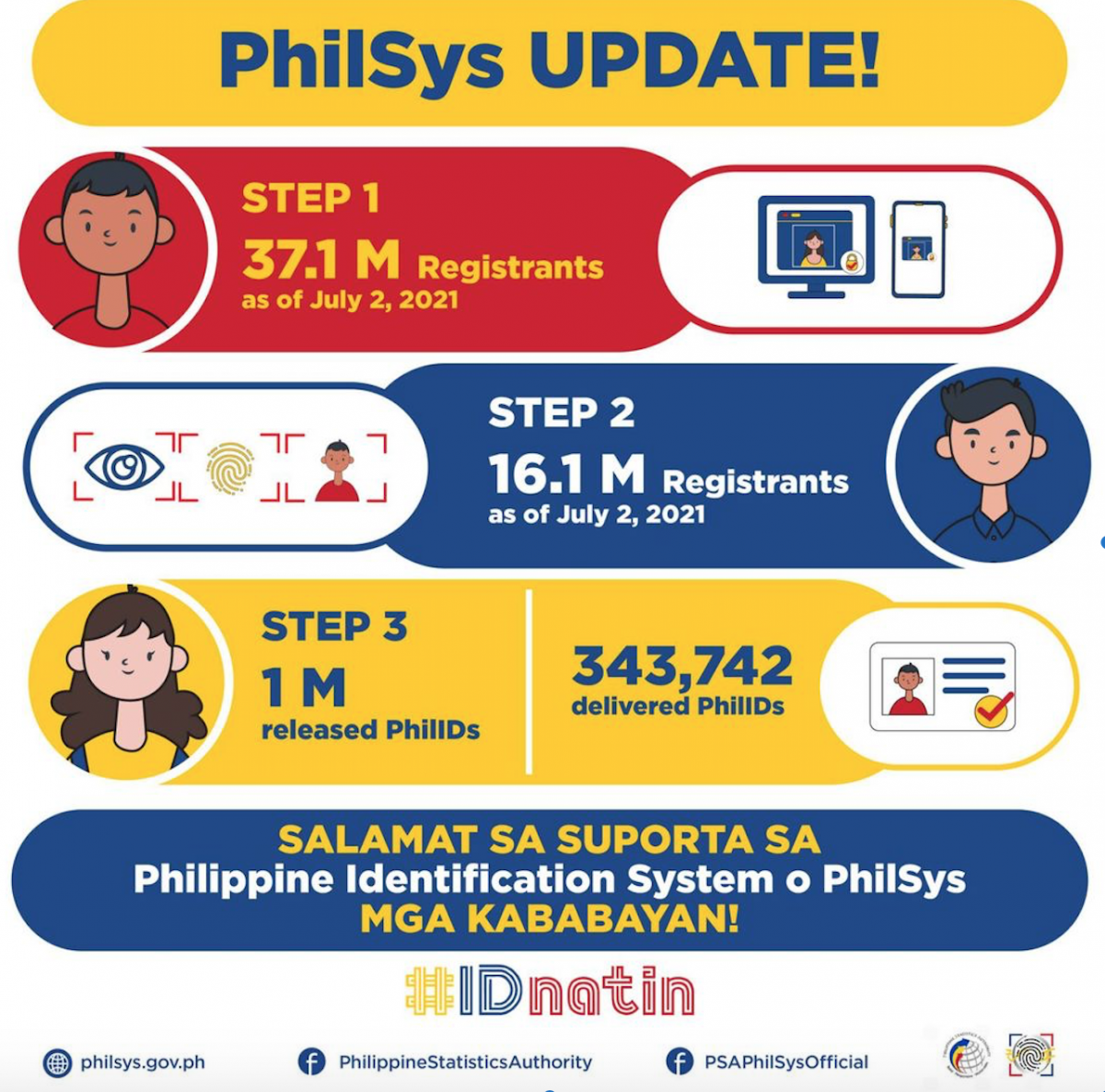QUEZON CITY -- The government is on track to reach its 50 to 70 million registration target by the end of 2021, said the National Economic and Development Authority (NEDA) in a statement.
As of July 02, 2021, Philippine Statistics Authority (PSA) data shows a total of 343,742 registrants have received their PhilID or national ID, 37.1 million individuals registered for step 1, and some 16.1 million completed step 2 registration.
Amidst the Covid-19 crisis, PhilSys adopted a three-step registration process to roll out its implementation safely.
Starting on a small-scale, gradual basis in January 2021, Step 2 registration is now in full swing in almost all provinces nationwide.
Aside from those in PSA field offices, most registration center locations are identified and established with the help of local government units.
Mall-based registration centers have also commenced operations in the second quarter this year. As of 02 July, there are 965 operational registration centers in 78 provinces for the Step 2 registration.
Recognizing PhilSys registration as an essential government service in support of vaccine deployment, the Inter-Agency Task Force for the Management of Emerging Infectious Disease (IATF-EID) issued Resolution No.114 that allows individuals 15 to 17 years old and above 65 years old to leave their residence to proceed to the PSA registration centers for the PhilSys Step 2 registration.
“The Covid-19 crisis underscores the need to provide unhampered access to banking and social services for all Filipinos, especially the poor. This is why the President gave the directive to accelerate the implementation of the Philippine Identification System or PhilSys to provide all Filipinos a unique and digitalized ID,” Socioeconomic Planning Secretary Karl Kendrick Chua said in a recent statement.
The Philippine Identification System Act or Republic Act No. 11055 was signed into law in August 2018, which aims to harmonize and integrate several government-issued IDs by creating a single official ID card for all citizens.
Under the PhilSys Act, every citizen and the resident alien shall register in designated centers to provide their demographic data and biometric information.
The mandatory demographic data are full name, sex, date of birth, place of birth, blood type, permanent address, and whether a Filipino citizen or resident alien.
The mandatory biometric information is a front-facing photograph, a full set of fingerprints, and an iris scan. Every registered person will receive a unique PhilSys number.
The government allocated a total of Php4.1 billion under the proposed Php4.506 trillion national budget for 2021 to fast-track the implementation of the National ID system. (GRC-PIA IDPD)





